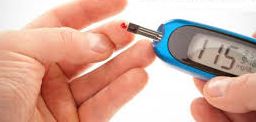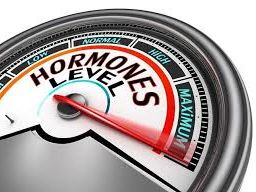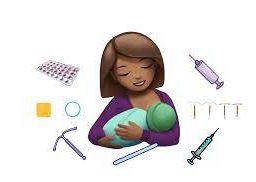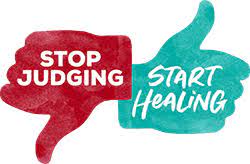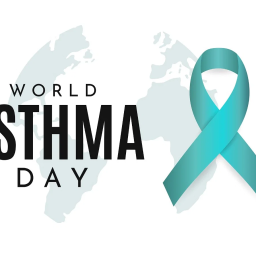
Myths and Facts About Erectile Dysfunction: Separating Truth from Fiction
Erectile dysfunction, is a prevalent condition affecting many men worldwide. Delving deeper into understanding the intricacies of ED can offer clarity, dispel myths, and pave the way for effective solutions. Let’s embark on this enlightening journey to uncover the truths about erectile dysfunction.
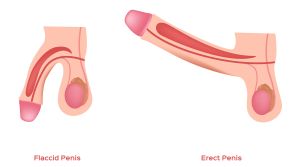

Impotence, medically referred to as erectile dysfunction (ED), is a condition that affects countless men worldwide, yet it remains a topic shrouded in silence and stigma. It’s time to bring this important issue into the light, providing insight into what impotence is, its causes, and potential solutions. This post aims to offer a comprehensive understanding of erectile dysfunction, dispelling myths, and guiding individuals towards effective solutions.


Impotence, or erectile dysfunction, is the inability to achieve or maintain an erection sufficient for sexual intercourse. It’s important to understand that occasional difficulties with erections are normal, but when this issue becomes persistent and disrupts your sex life, it may be classified as impotence.
How Impotence Occurs
Impotence primarily occurs due to issues related to blood flow and nerve signals in the penis. When a man becomes sexually aroused, the brain sends signals to the nerves in the genital area, leading to the relaxation of muscles and increased blood flow to the penis. This causes an erection. Impotence occurs when this process is disrupted. Factors such as physical health conditions, psychological factors, or lifestyle choices can interfere with the necessary blood flow and nerve signals, preventing or hindering an erection.
Understanding the Causes of erectile dysfunction
Impotence can be caused by various factors, which can often overlap:
- Physical Factors: These include conditions like diabetes, heart disease, high blood pressure, obesity, and hormonal imbalances, all of which can affect blood flow to the penis.
– Cardiovascular issues like hypertension and atherosclerosis can restrict blood flow to the penis.
– Hormonal imbalances, particularly low testosterone levels, can contribute to impotence.
– Obesity, diabetes, and metabolic syndrome are linked to ED.
– Neurological disorders, like multiple sclerosis, may affect nerve signals.
- Psychological Factors: Stress, anxiety, depression, and relationship problems can contribute to impotence by affecting the mind’s ability to initiate the necessary nerve signals.
– Stress, anxiety, and depression can negatively impact sexual performance.
– Relationship issues and communication problems can contribute to ED
- Lifestyle Choices: Smoking, excessive alcohol consumption, and drug use can impair erectile function and increase the risk of impotence.
- Medications: Some medications, such as those for hypertension or depression, may have impotence as a side effect.
Risk Factors for Erectile Dysfunction
Age: While not exclusive to older men, the risk of impotence generally increases with age.
Medical Conditions: Those with chronic conditions like diabetes, heart disease, or hypertension are more susceptible to ED.
Prevention Strategies for Erectile Dysfunction
1. Maintain a Healthy Lifestyle: Regular exercise, a balanced diet, stress management, and adequate sleep can reduce the risk of impotence.
2. Avoid Excessive Alcohol and Substance Use: These can contribute to impotence over time.
3. Manage Chronic Conditions: Proper management of conditions like diabetes, hypertension, and heart disease can reduce the risk of impotence.


Available Treatments for Erectile Dysfunction
There are various effective treatments for impotence, depending on its cause:
1. Lifestyle Changes:
– Incorporating regular exercise, a balanced diet, and stress management can improve ED.
– Quitting smoking and moderating alcohol consumption can also be beneficial.
2. Medications:
– Prescription drugs like Viagra, Cialis, and Levitra increase blood flow to the penis, aiding in achieving and maintaining an erection.
3. Psychological Counseling:
– Counseling can address underlying psychological factors contributing to impotence, such as anxiety and depression.
4. Vacuum Erection Devices:
– These non-invasive devices help create an erection by drawing blood into the penis and facilitating an erection.
5. Penile Implants:
– Surgical options like penile implants are considered when other treatments fail to produce results.
6.Seeking Professional Help:
If you suspect you have impotence, it’s crucial to consult a healthcare professional. They can perform a thorough evaluation to determine the underlying cause of your condition. This evaluation might include blood tests, physical exams, and psychological assessments.
The Emotional Impact of Erectile Dysfunction


Erectile dysfunction can have a profound emotional impact on those who experience it. Feelings of inadequacy, shame, and frustration are common. It’s essential to recognize that ED is a medical condition and not a reflection of one’s masculinity or self-worth. Seeking support from a healthcare provider and a mental health professional can be crucial for addressing these emotional aspects.
Living with impotence can be emotionally challenging, not only for the affected individual but also for their partner. If you or a loved one is dealing with impotence, open and honest communication is key. Here are some tips:
- Talk to a Healthcare Provider: Don’t hesitate to seek medical advice. Your healthcare provider can help identify the underlying causes and recommend appropriate treatments.
- Talk to Your Partner: It’s essential to maintain open and supportive communication. Couples can explore different ways to connect intimately and find alternatives to traditional sexual intercourse Discussing ED with your partner can strengthen your relationship. Understanding and empathy are essential for both of you.
- Consider Couples Therapy: Couples therapy can provide a safe space to address relationship issues related to ED and find solutions together.
- Join Support Groups: There are support groups and online communities where individuals with ED can share their experiences, find support, and learn from others.
Demystifying Impotence/ Erectile Dysfunction


Myth 1: Erectile Dysfunction Equals Masculinity Loss
The truth is impotence is not a measure of one’s masculinity. It’s a medical condition with multifactorial causes.
Myth 2: Erectile Dysfunction Is Age-Exclusive
Reality: While age can be a contributing factor, impotence can affect men of all ages, including young adults.
Myth 3: Erectile Dysfunction Is Untreatable
Reality: There are numerous effective treatments for impotence, ranging from lifestyle changes to medical interventions.
Myth 4: Erectile Dysfunction only affects older men
Reality: While impotence becomes more prevalent with age, it can affect men of all ages, including younger individuals.
Myth 5: Erectile Dysfunction is a sign of weakness
Reality: Impotence is a medical condition, not a reflection of a man’s masculinity or strength.
Myth 6: Erectile Dysfunction is a rare condition
Reality: Impotence is quite common, with an estimated 30 million men in the United States alone experiencing it to some degree.
Erectile dysfunction is a common condition that affects men of all ages and backgrounds. Remember, you’re not alone in this journey, and seeking medical advice and support is the first step towards finding a solution that works for you.
Disclaimer: The information provided in this content is for general informational purposes only. It is not intended as medical or healthcare advice, diagnosis, or treatment. Always seek the advice of a qualified healthcare professional with any questions you may have regarding a medical condition or healthcare decisions.





